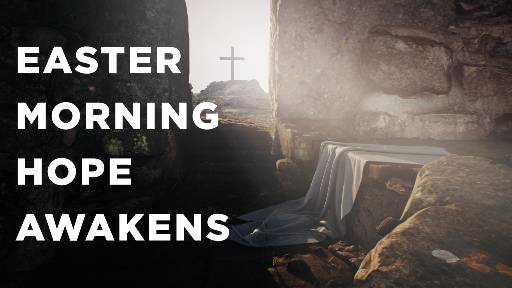-
17th Sunday After Pentecost. September 24th, 2023. Series
Contributed by Christopher Holdsworth on Aug 28, 2023 (message contributor)
Summary: Year A, Proper 20.
Exodus 16:2-15, Psalm 105:1-6, Psalm 105:37-45, Jonah 3:10, Jonah 4:1-11, Psalm 145:1-8, Philippians 1:21-30, Matthew 20:1-16
A). BREAD OF HEAVEN.
Exodus 16:2-15.
In this passage, we join the children of Israel just six weeks into their wilderness journey. The ten plagues, the first Passover, the deliverance out of Egypt, and the parting of the Red Sea all lay behind them. Yet now, here in the wilderness new fears and doubts arise, and the people of the LORD grumble at their spiritual leaders (EXODUS 16:2): and through them at their God (EXODUS 16:8b).
The DELIVERANCE of God, redemption, lies behind; but before long His people become full of DISCONTENTMENT - and mouthy with it.
How easy it is to set a rosy character on our past life, and to forget that then, there, we were in bondage (EXODUS 16:3). Yet the LORD is merciful. He has already heard the cries of His people in bondage (cf. Exodus 3:7). The same LORD knows our sorrows ahead of time.
Is it beyond belief that He has already prepared our path before us, complete with all the necessities of life (cf. Psalm 23:2-3)? So instead of directly punishing His people for their insolence, He sets a table before them, and furnishes it with good things (cf. Psalm 23:5).
He makes PROVISION for all the needs of all His people (EXODUS 16:4); but with the provision comes a TESTING. With the DAILY BREAD, He also gives us DAILY WORK. If God’s first gift to Adam was a garden, His second was a set of gardening tools (cf.. Genesis 2:15).
Within this system, He also gives the SABBATH (EXODUS 16:5; cf. Exodus 16:22-26).
The LORD’s provision of food: quail in the evening and manna in the morning, was a constant reminder that it is “the LORD hath brought you out from the land of Egypt” (EXODUS 16:6).
So, their complaints were groundless: these provisions were a recurring testimony to the LORD’s presence with His people (EXODUS 16:7).
And Moses made it clear that their murmurings were not just against Moses and Aaron, but primarily against the LORD (EXODUS 16:8).
Moses instructed Aaron to speak to the people, calling them together before the LORD: “for He hath heard your murmurings” (EXODUS 16:9).
Perhaps the most significant incident in this whole passage is the appearing of the glory of the LORD in the cloud (EXODUS 16:10). Such is the mercy of the LORD that DELIVERANCE is never far from any one of us.
“And the LORD spake unto Moses” (EXODUS 16:11). Our God is a SPAEAKING God. And, indeed, we thank God for His Word!
He is also a HEARING God: “I have heard the murmurings of the children of Israel” (EXODUS 16:12). The evening and morning meals were outlined: flesh (quails) in the evening, and bread (manna) in the morning. Why? So that “ye shall know that I am the LORD your God.”
And so it came to pass (EXODUS 16:13). That evening they ate quail; and then every morning until they entered the promised land, they ate ‘the bread of heaven’ (cf. Psalm 105:40).
Every time the morning dew cleared (except on the Sabbath), “a small round thing” appeared, ‘as small as the frost of the ground’ (EXODUS 16:14).
The name ‘Manna’ (cf. Exodus 16:31) means ‘What is it?’ Which is exactly what the people asked when they first saw it (EXODUS 16:15). Moses’ explanation was, “This is the bread which the LORD hath given you to eat.”
In Revelation 2:17 Jesus says, ‘To him that overcometh will I give to eat of the hidden manna.’ The manna here signifies our Lord Jesus Christ, 'the Bread of Life' (READ John 6:48-51).
B). FROM EGYPT TO CANAAN.
Psalm 105:1-6, Psalm 105:37-45.
PSALM 105:1. There is a call to “give thanks to the LORD.” It is always appropriate to remember and acknowledge the LORD’s gracious dealings with us.
Then there is an exhortation to “call upon His name.” We offer our praise and thanksgiving always to Him. His name (or names) represent who He is. We worship the one true and living God; the God of Abraham, Isaac and Israel; and the God and Father of our Lord Jesus Christ.
And there is a call to “make known His deeds among the people.” Not just the people of God, but all the peoples of the earth. It is a call to witness; a summons to testimony; and a commission to world mission.
PSALM 105:2. The next imperative is to: “Sing unto Him.” It is to the LORD that we are offering our praises. It is not for the choir to entertain the congregation, but for all to lift their voices in praise to the LORD.
And the Bible even provides us with a hymn book: “sing Psalms unto Him.” The book of Psalms is full of ‘psalms, hymns and spiritual songs’ (cf. Ephesians 5:19; Colossians 3:16). And it is a part of the inspired word of God.

 Sermon Central
Sermon Central



